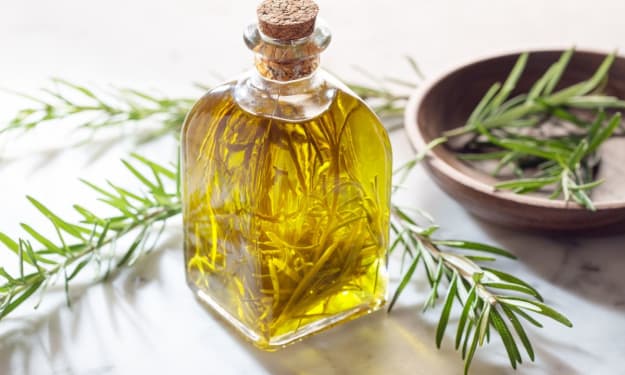Five Nuts to Increase Hemoglobin Instantly
Hemoglobin & Nuts

Iron Deficiency: Iron deficiency is closely associated with low hemoglobin levels and can lead to a condition called iron deficiency anemia. Hemoglobin is a protein in red blood cells that binds to oxygen and helps transport it throughout the body. When there is insufficient iron available, the body can't produce enough hemoglobin, resulting in anemia.
Iron deficiency anemia occurs when the body's iron stores are depleted, leading to a decrease in the production of red blood cells and hemoglobin. This condition can have a significant impact on overall health and well-being. Some common symptoms of iron deficiency anemia include fatigue, weakness, pale skin, shortness of breath, and increased heart rate.
Treating iron deficiency anemia involves addressing the underlying cause, which is the lack of iron. This can be done through dietary changes, iron supplementation, or addressing any underlying medical conditions that might be contributing to the iron deficiency. In more severe cases, when iron deficiency anemia is not effectively managed, it can lead to more serious health issues.
Five nuts that will make up for your iron deficiency and increase your hemoglobin.
1. Almonds
Almonds are a nutritious food that can contribute to maintaining healthy hemoglobin levels, especially if you're dealing with iron deficiency anemia or low hemoglobin levels. While almonds themselves are not extremely high in iron, they do contain some iron along with other nutrients that support overall health and can indirectly help with hemoglobin production.
Almonds contain a variety of nutrients that can contribute to healthy blood and hemoglobin levels:
- Iron: Almonds contain a small amount of iron, which is an essential component of hemoglobin. While the iron content is not as high as in some other foods, every bit of dietary iron can contribute to your overall iron intake.
- Vitamin E: Almonds are a good source of vitamin E, an antioxidant that helps protect red blood cells and maintain their integrity.
- Copper: Copper is a trace mineral that plays a role in iron metabolism and is necessary for the body to properly absorb and utilize iron.
- Folate: Folate, also known as vitamin B9, is important for the production of healthy red blood cells, including hemoglobin.
- Vitamin B6: Vitamin B6 is involved in the production of hemoglobin and helps the body utilize iron effectively.
While almonds can be a valuable addition to your diet, it's important to note that they are not a primary source of iron. If you have significant concerns about your hemoglobin levels or iron deficiency anemia, it's recommended to focus on a balanced diet that includes a variety of iron-rich foods such as lean meats, poultry, fish, legumes, leafy greens, fortified cereals, and nuts and seeds including almonds.
2. Cashew
Cashews are another nutritious nut that can provide certain nutrients that support overall health, including the production of hemoglobin. While cashews also contain some iron, they are more notable for their contribution of other nutrients that play a role in maintaining healthy blood and hemoglobin levels:
- Iron: Cashews contain a moderate amount of iron, which can contribute to your overall iron intake. While they may not be as high in iron as some other foods, every source of dietary iron can make a positive impact.
- Copper: Copper is essential for the absorption, transport, and utilization of iron in the body. Cashews are a good source of copper, which supports iron metabolism and hemoglobin production.
- Magnesium: Magnesium is involved in various biochemical processes, including the production of hemoglobin. It helps in the synthesis of DNA and proteins, which are essential for the proper functioning of red blood cells.
- Vitamin K: Vitamin K is important for blood clotting and can contribute to the overall health of blood cells.
- Vitamin E: As an antioxidant, vitamin E helps protect cells, including red blood cells, from damage. It supports overall cell health and function.
Including a variety of nuts, including cashews, in your diet can provide these beneficial nutrients that support hemoglobin production and overall health.
3. Peanuts
Peanuts are another nutritious food that can be included in your diet to support overall health, including the production of hemoglobin. While peanuts are not as high in iron as some other foods, they do provide several nutrients that can contribute to maintaining healthy blood and hemoglobin levels:
- Iron: Peanuts contain a moderate amount of iron, which can contribute to your overall iron intake. While the iron content may not be as high as in some animal products or legumes, it still provides a valuable source of dietary iron.
- Folate: Folate, also known as vitamin B9, is important for the production of healthy red blood cells, including hemoglobin. Peanuts contain folate, which supports the overall health of your blood cells.
- Copper: Copper is a trace mineral that plays a role in iron metabolism and is necessary for the body to properly absorb and utilize iron. Peanuts provide some copper, which can support iron utilization.
- Vitamin E: Peanuts are a source of vitamin E, an antioxidant that helps protect cells, including red blood cells, from damage. This contributes to the overall health of your blood cells.
- Protein: Protein is necessary for the synthesis of hemoglobin and other components of blood. Peanuts are a good source of plant-based protein.
4. Pistachios
Pistachios are a nutritious nut that can be included in your diet to support overall health, including hemoglobin production. While pistachios are not extremely high in iron, they do contain a variety of nutrients that play a role in maintaining healthy blood and hemoglobin levels:
- Iron: Pistachios contain a small amount of iron, which contributes to your overall iron intake. While the iron content may not be as high as in some other foods, incorporating pistachios as part of a balanced diet can provide additional sources of dietary iron.
- Vitamin B6: Vitamin B6 is involved in the production of hemoglobin and helps the body utilize iron effectively. Pistachios are a source of vitamin B6, which can support overall blood health.
- Copper: Copper is essential for the absorption, transport, and utilization of iron in the body. Pistachios contain some copper, which supports iron metabolism and the production of healthy red blood cells.
- Folate: Folate (vitamin B9) is important for the production of healthy red blood cells. While pistachios don't contain very high levels of folate, they can contribute to your overall intake of this important nutrient.
- Protein: Protein is necessary for the synthesis of hemoglobin and other blood components. Pistachios are a source of plant-based protein.
5. Walnut
Walnuts are a nutritious nut that can be part of a balanced diet to support overall health, including hemoglobin production. While walnuts are not particularly high in iron, they provide various nutrients that play a role in maintaining healthy blood and hemoglobin levels:
- Copper: Copper is important for the absorption, transport, and utilization of iron in the body. Walnuts contain a small amount of copper, which supports iron metabolism and hemoglobin production.
- Folate: Folate (vitamin B9) is necessary for the production of healthy red blood cells, including hemoglobin. Walnuts provide a small amount of folate, contributing to your overall intake of this important nutrient.
- Omega-3 Fatty Acids: Walnuts are a good source of alpha-linolenic acid (ALA), which is an omega-3 fatty acid. Omega-3 fatty acids support cardiovascular health and may indirectly contribute to healthy blood circulation.
- Antioxidants: Walnuts contain antioxidants, including vitamin E and polyphenols, which help protect cells, including red blood cells, from damage.
- Protein: Protein is essential for the synthesis of hemoglobin and other blood components. Walnuts provide plant-based protein.
It's important to note that while walnuts offer these health benefits, they are not a primary source of iron. If you are specifically addressing low hemoglobin levels or iron deficiency anemia, it's recommended to include a variety of iron-rich foods in your diet, such as lean meats, poultry, fish, legumes, leafy greens, fortified cereals, and other nuts and seeds.





Comments
There are no comments for this story
Be the first to respond and start the conversation.